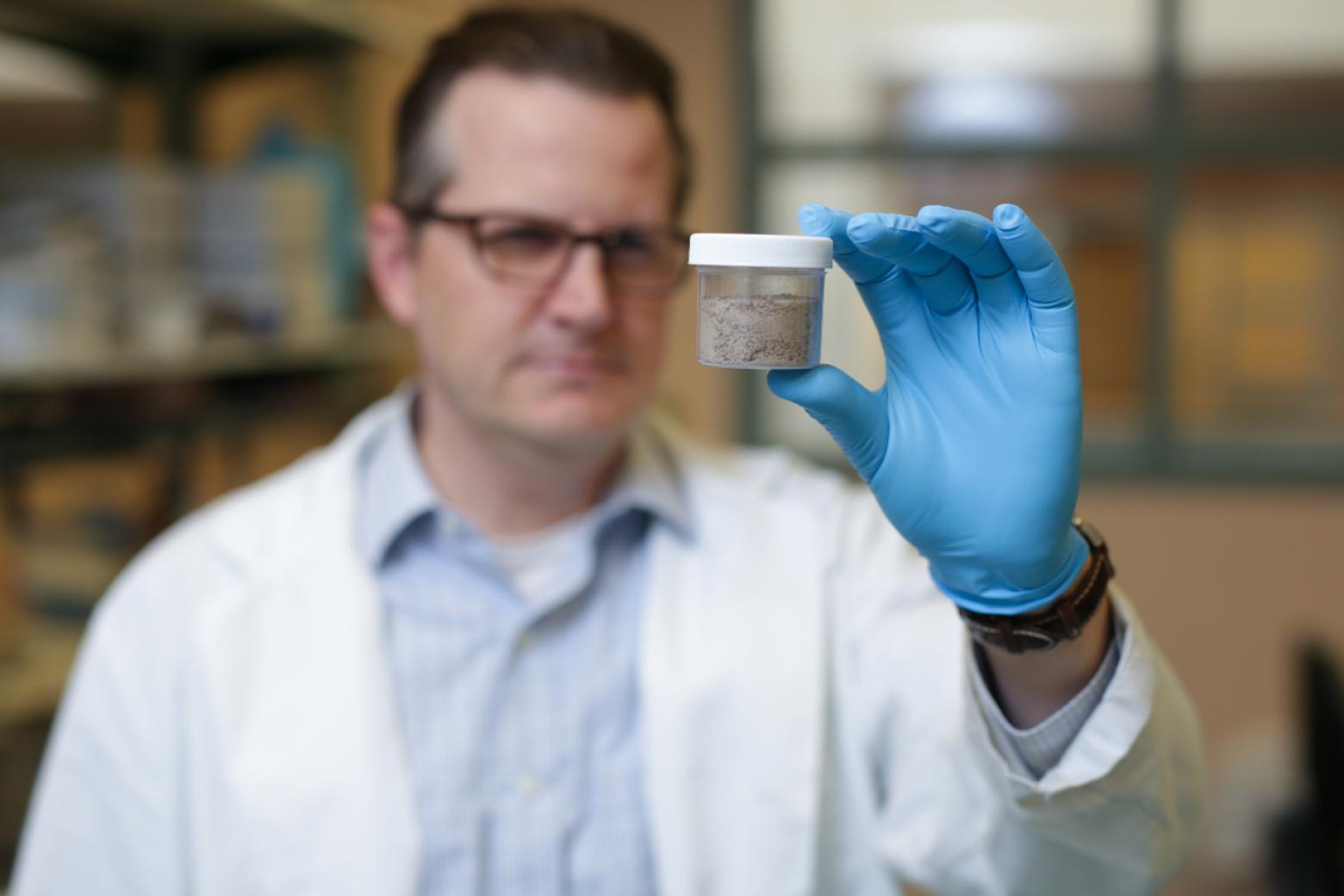About PFAS@Mines
The Colorado School of Mines is a global leader in understanding and addressing the environmental impacts of poly- and perfluoroalkyl substances (PFASs), a class of chemicals widely used in industrial and commercial applications since the 1950s. PFAS@Mines adopts an interdisciplinary, solutions-based approach to address knowledge gaps in the challenge of PFAS contamination.
PFASs are synthetic chemical compounds widely used to provide products with functions such as stain and water repellence and grease resistance. Some groups of PFASs have been used as surfactants in applications where chemical and thermal stability is desired, such as in firefighting foams. The perfluorinated subclasses of PFASs do not naturally degrade in the environment or the human body and are thus informally known as “forever chemicals.” The enduring presence of PFASs in the environment is a major global challenge, including for U.S. government agencies such as the Department of Defense (DoD) that have used firefighting foam containing PFASs. Hundreds of DoD installations have groundwater with PFAS levels well above federal health advisory levels due to extensive use of firefighting foams containing these substances. High PFAS contamination is also a problem in civilian sites due to similarly extensive use of firefighting foams in many civilian airports and fire training centers as well as by municipal fire departments.
 Faculty and students in the Civil and Environmental Engineering, Chemistry, and Geology and Geological Engineering departments lead the PFAS@Mines initiative. They are at the forefront of charactering the environmental behavior of PFASs, studying human exposure, and developing treatment technologies for PFAS-impacted soils and drinking water. Working at the molecular scale to the aquifer scale, our team of scientists and engineers are advancing remediation and treatment strategies for difficult-to-treat matrices, evaluating the fate and transport of PFASs at foam-impacted sites, investigating PFAS interactions with biological systems, and modelling molecular-scale PFAS behavior. This research is currently funded by the U.S. Department of Defense, the National Science Foundation, the U.S. Environmental Protection Agency, and many others.
Faculty and students in the Civil and Environmental Engineering, Chemistry, and Geology and Geological Engineering departments lead the PFAS@Mines initiative. They are at the forefront of charactering the environmental behavior of PFASs, studying human exposure, and developing treatment technologies for PFAS-impacted soils and drinking water. Working at the molecular scale to the aquifer scale, our team of scientists and engineers are advancing remediation and treatment strategies for difficult-to-treat matrices, evaluating the fate and transport of PFASs at foam-impacted sites, investigating PFAS interactions with biological systems, and modelling molecular-scale PFAS behavior. This research is currently funded by the U.S. Department of Defense, the National Science Foundation, the U.S. Environmental Protection Agency, and many others.
Research Areas

Environmental Behavior
Accurately predicting the long-term impacts of PFAS-contaminated groundwater and soil is a critical need for sites where PFASs have been released.

Treatment Technologies
PFAS scientists and engineers at Mines are working to identify technologies to remediate water and soil as well as challenging PFAS contamination scenarios and matrices.

Human Exposure
Working to characterize how and when humans are exposed to PFASs, either through historical impacts to drinking water, contamination of food supplies or human exposure to PFASs via other means.